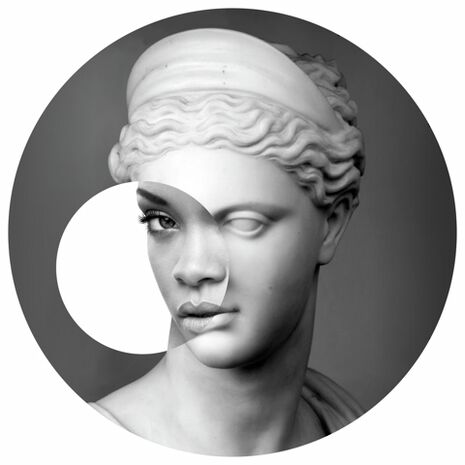Classics: Just ancient pop culture?
In light of the RECASTING exhibition being held at the Museum of Classical Archeology, Emer O’Hanlon explores the relationship between antiquity and contemporary pop culture

In a week where we can go to the theatre and see not only Medea in English, but also Antigone and Lysistrata in Ancient Greek, it’s perhaps the right moment to ask about the place of the Classics in popular culture. As a Classicist, I’m used to having to explain my degree to people who are unfamiliar with the worlds of Ancient Greece and Rome (barring what they’ve seen on TV, of course). I have a number of different explanations, depending on my mood and the sort of person to whom I’m talking. Sometimes, I’ll make it sound language heavy, whereas other times, I’ll focus on the literature we read. Often, I go for what I think is the best of all – that at its most basic, Classics is the study of culture.
That Classics should influence popular culture is by no means a modern phenomenon. After all, what was the Renaissance if not a huge acknowledgement of the role that Classical influences play in modern culture? Shakespeare borrowed freely from Ovid and Plutarch, while the alternate title The Modern Prometheus should tell you all you need to know about Shelley’s influences for Frankenstein. It’s not just a linear progression of Classical influencing modern, either – it’s far more cyclical. George Bernard Shaw’s Pygmalion, itself a modern reinterpretation of the story in Ovid’s Metamorphoses, spawned not only the musical adaptation My Fair Lady, but also Willy Russell’s Educating Rita and the episode of Buffy the Vampire Slayer, ‘I was made to love you’.
It’s a universally acknowledged fact in the entertainment industry that the Romans bring in money. Epics such as Ben-Hur and Cleopatra were huge on scales of production and popularity, and similar films (such as Gladiator and, later, Pompeii) can always be guaranteed to find a market. The Romans also changed the direction of primetime TV in 1976 with the adaptation of Robert Graves’ I, Claudius, which showed that the Romans could do intrigue, sex and acerbic ripostes better than anyone else. The creators of soap opera Dynasty acknowledged I, Claudius’ influence, and indeed, it’s easy to see how the dysfunctional family storyline (albeit taken to ridiculous lengths by the Julio-Claudians) stems from this. HBO’s Rome (2005) is a sort of unofficial prequel to I, Claudius, with the influence still clearly visible. Although only lasting for two seasons, Rome can be seen, in many ways, as the necessary predecessor that convinced the network of the potential popularity of something like Game of Thrones.
Suzanne Collins’ Hunger Games series is another prime example of taking the Classical and repurposing it. The dystopia in which the Hunger Games is set, Panem, takes its name from the works of Juvenal, a 1st-century AD satirist who famously denounced the people of Rome for failing to care about democracy, being too easily appeased as long as an emperor gave them panem et circenses: bread and circuses. How applicable this is to Collins’ world is debateable – the circuses of which Juvenal speaks were wildly popular with the masses, whereas in Panem, they are seen as prestigious among the rich and terrifying to the poor. I also seem to remember an awful lot of hunger in the books (the titles do give it away somewhat). The concept, however, still remains. The entertainment system in Panem is based on that of gladiators, with those living in the Capitol clearly modelled off the medieval view of the Roman empire. Even the names themselves (Coriolanus Snow, Plutarch Heavensbee and Caesar Flickerman) all have obvious Classical resonances.
Finally, the Classical texts themselves are constantly being reimagined in ways that illuminate modern concerns. The recent production of The Bacchae at the Almeida, for example, used the play to explore issues of gender and sexuality which, although present in the original text, were made all the more pertinent by the fact that such issues (particularly that of transgenderism) are big talking points at the moment. In this way, the Classics not only illuminate modern culture – they become part of it.
It would be wrong – ridiculous, even – to suggest that a smattering of the Classics somehow alleviates pop culture and turns it into something more highbrow. The great thing about studying Classics is learning that what appears from the outside to be intellectual and serious is more often than not pop culture itself – it’s just ancient pop culture. Classics are ever-present in pop culture not only because the themes and stories are so good that we must keep coming back to them, but because, for the Western world at least, the Classical world is the root of pop culture, rather than a mere passive influence.
 News / SU reluctantly registers controversial women’s soc18 December 2025
News / SU reluctantly registers controversial women’s soc18 December 2025 Features / Should I stay or should I go? Cambridge students and alumni reflect on how their memories stay with them15 December 2025
Features / Should I stay or should I go? Cambridge students and alumni reflect on how their memories stay with them15 December 2025 News / Dons warn PM about Vet School closure16 December 2025
News / Dons warn PM about Vet School closure16 December 2025 News / Cambridge study finds students learn better with notes than AI13 December 2025
News / Cambridge study finds students learn better with notes than AI13 December 2025 News / Uni registers controversial new women’s society28 November 2025
News / Uni registers controversial new women’s society28 November 2025









